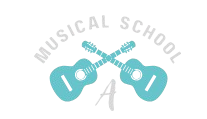1. Builds a Strong Musical Foundation
Music theory gives beginners a solid starting point. It helps explain why certain notes sound good together, how to read sheet music, and how pieces are constructed. With this knowledge, students gain a more complete understanding of what they’re playing.
“Music theory turns random notes into meaningful music.”
2. Enhances Sight Reading and Notation Skills
Students who study music theory learn to read music faster and more accurately. Recognizing rhythmic patterns, key changes, and chord progressions on the page translates into better performance and quicker learning.
3. Boosts Creative Confidence
Knowing the rules gives you the freedom to bend or break them creatively. Theory empowers beginners to write their own music, improvise, and experiment with different styles—all with confidence and clarity.
4. Improves Communication with Other Musicians
Music is often collaborative. Understanding theory allows you to speak a common musical language, making rehearsals, group practices, and performances more effective and enjoyable.
5. Supports Faster Progress
Theory streamlines learning. Instead of memorizing random notes or hand positions, students begin to understand musical logic, leading to faster progress and reduced frustration.
🎼 How Music Theory Makes You a Better Musician
Even a basic understanding of theory can help beginners:
- Play with more accuracy and intention
- Understand chord progressions and song structure
- Transpose songs into different keys
- Compose original music
- Jam with other musicians with ease
- Anticipate musical patterns and changes
Music theory isn’t just for classical musicians or composers—it benefits everyone, from hobbyists to aspiring professionals.
🎵 Real-Life Examples
Let’s say you’re learning to play the guitar. Understanding how chords are constructed makes it easier to learn new shapes and recognize relationships between them. As a singer, knowing your scales can help you warm up more effectively and sing in key. Drummers who grasp rhythmic notation can quickly pick up complex grooves and syncopated beats.
In each case, music theory unlocks your potential and makes your practice sessions more productive.
👨🏫 How We Teach Theory at [Your Music School Name]
At our music school, we don’t treat theory as a separate, boring subject. Instead, we integrate it into every lesson in a practical and engaging way. Whether it’s learning why a song sounds the way it does or how a rhythm is structured, our instructors ensure that theory feels useful—not overwhelming.
We also offer:
- Beginner-friendly theory workshops
- Visual and interactive learning tools
- Fun games and challenges to reinforce concepts
- Opportunities to apply theory in real music-making situations
✨ Final Thoughts: Make Music Theory Your Friend
Music theory doesn’t have to be intimidating. Think of it as a set of tools that make you a more confident, creative, and skilled musician. The more you understand, the more freedom you’ll have to explore and express yourself musically.
For beginners, embracing theory early on lays the groundwork for everything that follows. It’s not about memorizing rules—it’s about unlocking the logic and beauty of music itself.
🎶 Want to learn music theory in a fun, supportive way?
Join our beginner lessons and see how theory transforms your playing!
👉 [Start Your Free Trial Lesson Today]







